The fishing village of Killybegs, Co Donegal, is renowned for its innovative yet fiercely competitive business environment. With fishing quotas reduced due to Brexit and a growing emphasis on sustainability, seafood processors are working hard to gain an edge in the market.
The award-winning Island Seafoods, located just outside of Killybegs, is no stranger to these challenges. From the outset, Mick and Michael O’Donnell, a father-and-son team, focused on optimising the efficiency and sustainability of their business.
Their processing plant, established in 1986 by Mick, originally provided a prawn shelling service but later expanded into offering fish freezing services and developing its own product range.

Fish being smoked.
Over the years, the company has embarked on various renewable energy and energy efficiency projects and, as a result, today its electricity usage is carbon-neutral.
Hydropower
Construction of a new hydroelectric power plant, located on the grounds of its waste water treatment plant, started in 2007. What’s particularly interesting about this plant is its power source.
In the early 2000s, the council carried out construction work to build a new overflow for the Lough Aderry reservoir, which serves as a source of drinking water for Killybegs.
Mick obtained permission to tap into this overflow and divert some of the water down a 2.1km pipeline into his hydroelectric plant.
The lough is situated about 70m above the level of the plant, and once diverted down the 600mm wide pipe, the water creates around 6.5 bars of pressure to power the 250kW hydro turbine.

The water produces five bars of pressure.
The overflow typically runs for around 10 months of the year, ceasing during periods of dry weather.

Lough Aderry reservoir.
On average, the turbine generates over 650,000kWh of electricity per year, which is exported to the grid to offset imports for their wastewater treatment plant.
Under the Government-supported renewable energy feed-in tariff (REFIT) scheme, Mick receives a payment of 9.1c/kWh for his exported electricity. This scheme is due to end in two years.

The hydro plant produced up to 250kW of electricity.
Wind power
In 2016, the company started work on developing its wind turbine project located behind the plant. However, the project encountered significant challenges.
Despite a smooth planning process, obtaining an appropriate grid connection was extremely difficult and it took four years to complete this process.
As a result, the commissioning of the turbine did not take place until 2021, and the maximum grid connection they were able to secure was 500kW.

The wind turbine is de-rated to 500kW.
Although the wind turbine was capable of producing more than 800kW of electricity, its output was de-rated to 500kW.
The company purchased secondhand Vestas 850 turbine blades and a generator from Germany and worked with a Galway-based company to construct a new tower that stands at 44m tall. The turbine has been operational since 2021, but it was offline for two months last year after being struck by lightning.
Energy efficiency
In 2009, the company identified a number of options to further reduce energy consumption throughout the business. It decided to pursue six key improvements that have contributed to a reduction of 205 tonnes of carbon emissions per year. The overall spend by Island Seafoods was around €86,000 but it secured a €44,000 grant from the SEAI to help with this.
The improvement plan was based on the principle that you can’t manage what you don’t measure. Therefore, the first part of the improvement plan involved installing an online monitoring system. This allowed them to identify electrical loads and profiles, and as other improvements were made, these were quantified, and actual savings were calculated.
The measures included:
Installing a cooling tower using water from the stream, reducing electrical demand by 34.5 megawatt hours (MWh) annually.Replacing fluorescent lighting in older parts of the factory with low-energy lighting and strategically placing new skylights to maximise natural daylight.Installing occupancy sensors in key areas to save 27.2MWh annually.Heat-testing cold stores and added insulation to minimise losses and reduce compressor running times, resulting in reduction of 20MWh annually.Fitting a soft start motor to the main blast freezer compressor, resulting in 5MWh of annual savings and reducing pressure on the refrigeration system. Installing a water-cooled condenser on the cold store and switching from a purely electrical refrigeration system.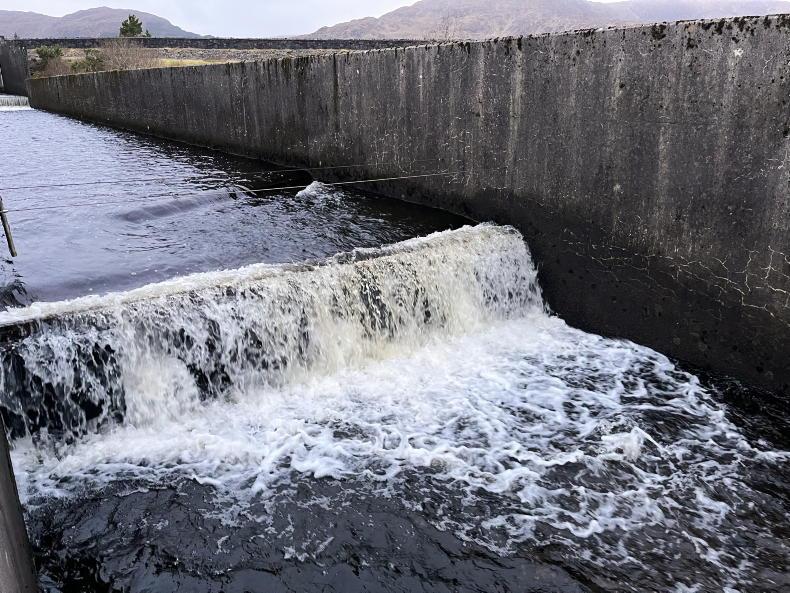
Water is diverted from the overspill at Lough Aderry reservoir to power Mick's hydroelectric plant.
In 2021, the total electricity needed for all of the plant’s operations, including processing and wastewater treatment, was 1,112,920kWh.
The combination of hydro and wind energy generation on-site produced 1,676,370kWh of electricity, around 1.5 times what was actually needed.
Based on their analysis, this saves approximately 361t of CO2e per year, equal to the carbon emissions of one car driving 2,107,016km.

Fish coming out of the freezer.
The company launched its own retail range in 2010, collaborating closely with Bord Bia to create the Atlantic Treasures brand.
According to Michael O’Donnell, the aim was to do more with less due to the challenge of securing fresh fish from boats.
The company also considered the changing demographics of its customer base, realising that seafood needed to be more accessible and easier to prepare for younger customers.
The product range has expanded considerably and now includes salted and smoked fillets, with in-house smoking kilns used to smoke the fish.
The company distributes its products to retailers across Ireland and produces own-brand products for Aldi and Dunnes Stores.
It continues to expand overseas in locations such as the UAE and Singapore with future plans to break into China, mainland Europe and Japan.

Island Seafoods produces a wide range of products.
Primary processing of the fish takes place from October to March during the fishing season, with the remainder of the year dedicated to secondary processing for value-added products. This enables the company to maintain a staff of 25 full-time employees throughout the year.

The fishing village of Killybegs, Co Donegal, is renowned for its innovative yet fiercely competitive business environment. With fishing quotas reduced due to Brexit and a growing emphasis on sustainability, seafood processors are working hard to gain an edge in the market.
The award-winning Island Seafoods, located just outside of Killybegs, is no stranger to these challenges. From the outset, Mick and Michael O’Donnell, a father-and-son team, focused on optimising the efficiency and sustainability of their business.
Their processing plant, established in 1986 by Mick, originally provided a prawn shelling service but later expanded into offering fish freezing services and developing its own product range.

Fish being smoked.
Over the years, the company has embarked on various renewable energy and energy efficiency projects and, as a result, today its electricity usage is carbon-neutral.
Hydropower
Construction of a new hydroelectric power plant, located on the grounds of its waste water treatment plant, started in 2007. What’s particularly interesting about this plant is its power source.
In the early 2000s, the council carried out construction work to build a new overflow for the Lough Aderry reservoir, which serves as a source of drinking water for Killybegs.
Mick obtained permission to tap into this overflow and divert some of the water down a 2.1km pipeline into his hydroelectric plant.
The lough is situated about 70m above the level of the plant, and once diverted down the 600mm wide pipe, the water creates around 6.5 bars of pressure to power the 250kW hydro turbine.

The water produces five bars of pressure.
The overflow typically runs for around 10 months of the year, ceasing during periods of dry weather.

Lough Aderry reservoir.
On average, the turbine generates over 650,000kWh of electricity per year, which is exported to the grid to offset imports for their wastewater treatment plant.
Under the Government-supported renewable energy feed-in tariff (REFIT) scheme, Mick receives a payment of 9.1c/kWh for his exported electricity. This scheme is due to end in two years.

The hydro plant produced up to 250kW of electricity.
Wind power
In 2016, the company started work on developing its wind turbine project located behind the plant. However, the project encountered significant challenges.
Despite a smooth planning process, obtaining an appropriate grid connection was extremely difficult and it took four years to complete this process.
As a result, the commissioning of the turbine did not take place until 2021, and the maximum grid connection they were able to secure was 500kW.

The wind turbine is de-rated to 500kW.
Although the wind turbine was capable of producing more than 800kW of electricity, its output was de-rated to 500kW.
The company purchased secondhand Vestas 850 turbine blades and a generator from Germany and worked with a Galway-based company to construct a new tower that stands at 44m tall. The turbine has been operational since 2021, but it was offline for two months last year after being struck by lightning.
Energy efficiency
In 2009, the company identified a number of options to further reduce energy consumption throughout the business. It decided to pursue six key improvements that have contributed to a reduction of 205 tonnes of carbon emissions per year. The overall spend by Island Seafoods was around €86,000 but it secured a €44,000 grant from the SEAI to help with this.
The improvement plan was based on the principle that you can’t manage what you don’t measure. Therefore, the first part of the improvement plan involved installing an online monitoring system. This allowed them to identify electrical loads and profiles, and as other improvements were made, these were quantified, and actual savings were calculated.
The measures included:
Installing a cooling tower using water from the stream, reducing electrical demand by 34.5 megawatt hours (MWh) annually.Replacing fluorescent lighting in older parts of the factory with low-energy lighting and strategically placing new skylights to maximise natural daylight.Installing occupancy sensors in key areas to save 27.2MWh annually.Heat-testing cold stores and added insulation to minimise losses and reduce compressor running times, resulting in reduction of 20MWh annually.Fitting a soft start motor to the main blast freezer compressor, resulting in 5MWh of annual savings and reducing pressure on the refrigeration system. Installing a water-cooled condenser on the cold store and switching from a purely electrical refrigeration system.
Water is diverted from the overspill at Lough Aderry reservoir to power Mick's hydroelectric plant.
In 2021, the total electricity needed for all of the plant’s operations, including processing and wastewater treatment, was 1,112,920kWh.
The combination of hydro and wind energy generation on-site produced 1,676,370kWh of electricity, around 1.5 times what was actually needed.
Based on their analysis, this saves approximately 361t of CO2e per year, equal to the carbon emissions of one car driving 2,107,016km.

Fish coming out of the freezer.
The company launched its own retail range in 2010, collaborating closely with Bord Bia to create the Atlantic Treasures brand.
According to Michael O’Donnell, the aim was to do more with less due to the challenge of securing fresh fish from boats.
The company also considered the changing demographics of its customer base, realising that seafood needed to be more accessible and easier to prepare for younger customers.
The product range has expanded considerably and now includes salted and smoked fillets, with in-house smoking kilns used to smoke the fish.
The company distributes its products to retailers across Ireland and produces own-brand products for Aldi and Dunnes Stores.
It continues to expand overseas in locations such as the UAE and Singapore with future plans to break into China, mainland Europe and Japan.

Island Seafoods produces a wide range of products.
Primary processing of the fish takes place from October to March during the fishing season, with the remainder of the year dedicated to secondary processing for value-added products. This enables the company to maintain a staff of 25 full-time employees throughout the year.














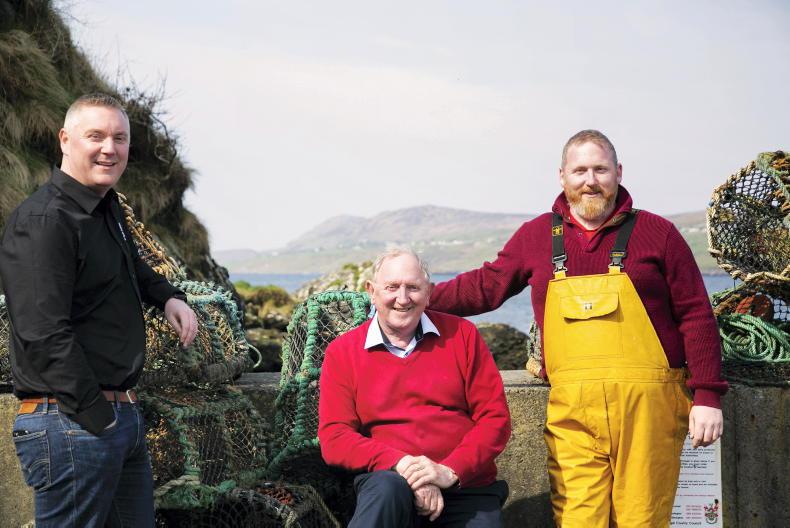
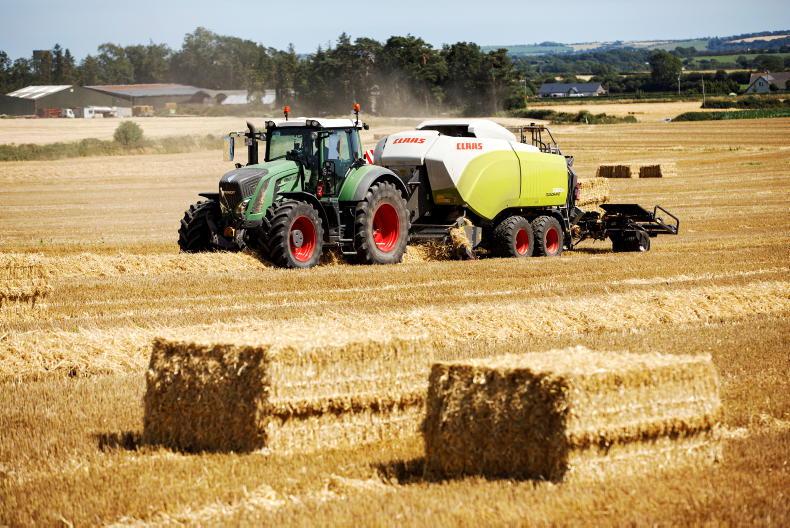

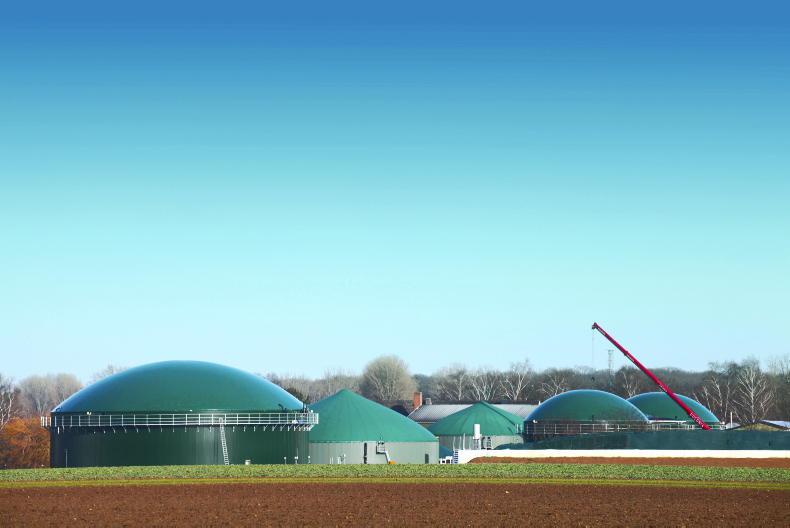
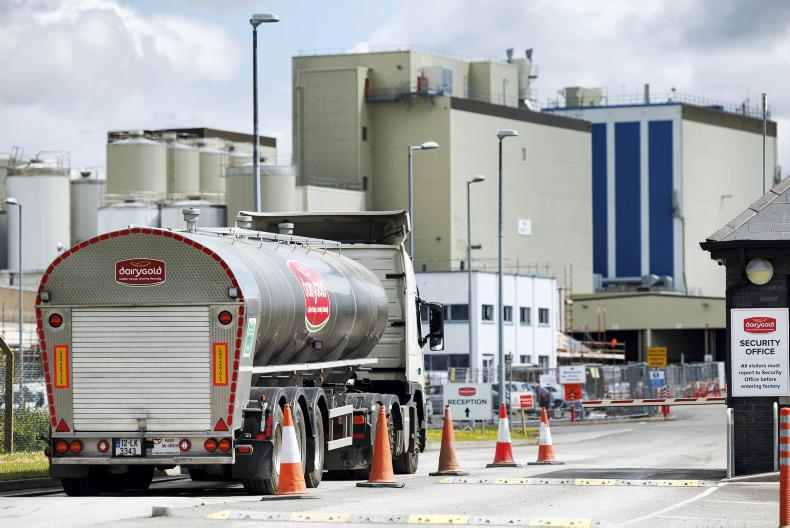

SHARING OPTIONS